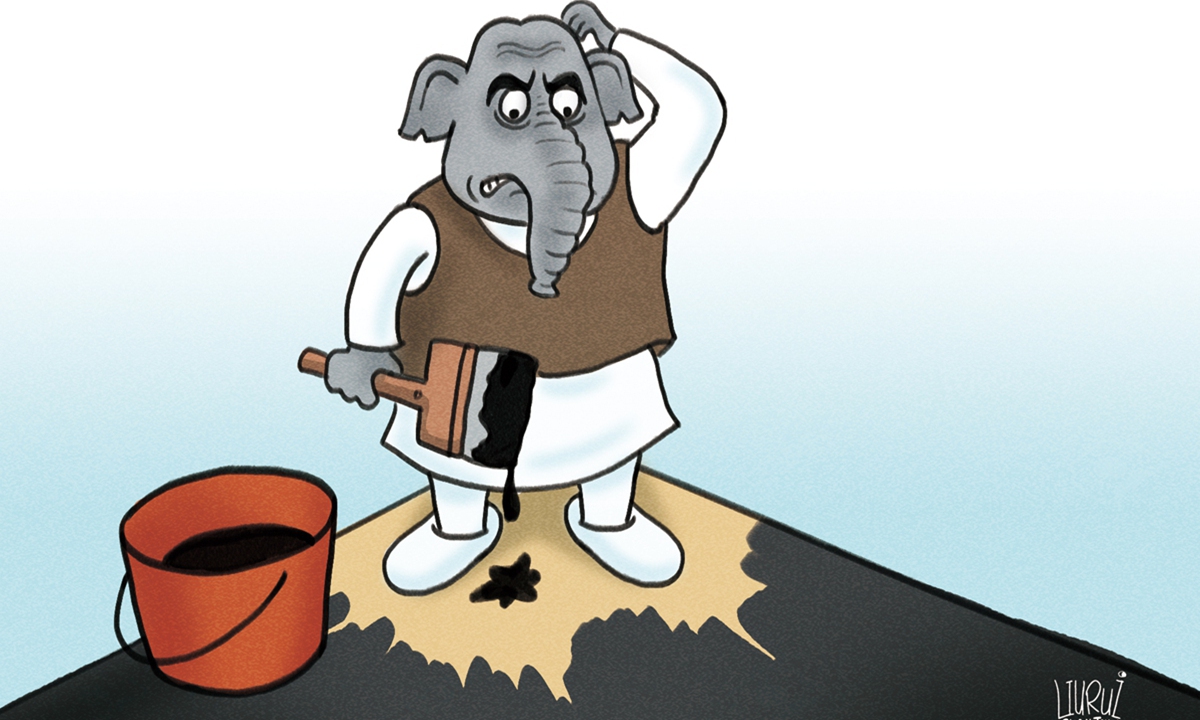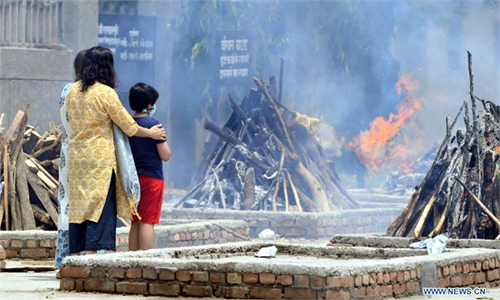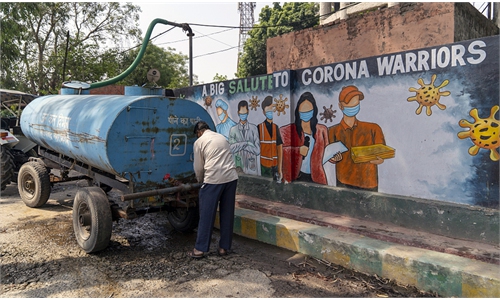
Illustration: Liu Rui/GT
Blinded by hostility toward China, some anti-China so-called strategists in India have disregarded China's support and help offered to India in its epidemic fight and never ceased their efforts to slander and discredit China.
In an article on Japanese news publication Nikkei Asia Wednesday, Brahma Chellaney, a New Delhi-based geo-strategist, claimed "China is making a permanent enemy of its largest neighbor." He accused China of taking advantage of India's "strictest coronavirus lockdown" last year to "stealthily infiltrate key border areas in India's high-altitude Ladakh region," warning against "further military surprises" China may spring "with India battling a sudden COVID explosion." He claimed China's "aggression" has proved "self-damaging," as it is "driving New Delhi ever closer to Washington."
For many Chinese scholars of India studies, Chellaney is an anti-China maniac. His views on China have been full of lies and smears. Chellaney distorted truth to attack China in his article. The border stand-offs between China and India last year were provoked first by the Indian side. It's not "China is making a permanent enemy of India," but anti-China figures like Chellaney have always regarded China as an enemy.
If China "is making a permanent enemy of India," why has it repeatedly exercised restraint and called for a peaceful settlement during the border conflicts triggered by the Indian side?
Why has it been among the first countries to express its willingness to provide necessary support and help to India in battling the second wave of coronavirus outbreak ravaging the country? It's fair to say China has made the greatest contribution to India's epidemic fight. Since this April, China has supplied more than 5,000 ventilators, 21,569 oxygen generators, over 21.48 million masks and around 3,800 tons of medicines to India, according to statistics from the General Administration of Customs of China. These life-saving supplies have helped ease India's shortage of anti-epidemic materials and saved more Indian people.
Chellaney said China's "aggression" is "self-damaging" as it is driving India closer to the US. He and his like are happy to see India moving closer to the US and the West. But this won't generate fatal strategic pressure on China as India has expected. Instead, it's more destructive for India to be used as the US' anti-China lackey and be tied to the chariot of the US. The latest round of epidemic in India has proven again that the US is not a reliable partner, but could stab India in the back when it's in a crisis.
So-called strategists like Chellaney have no idea of what is most in line with India's fundamental interests. They are misleading the Indian public and negatively influencing their perception about China.
China hopes it could jointly rise with India. Chinese President Xi Jinping called for China and India to jointly realize national rejuvenation when he visited India in 2014 and 2019. But India's anti-China strategists with a petty mind and a zero-sum mentality are unwilling to accept China's rise, viewing China's rise as a challenge to India. They have been inciting confrontation with China, and trying to make China a permanent enemy of India.
China has provided necessary assistance and support to India for its epidemic fight out of goodwill, humanitarianism and as a responsible great power. But could this lead to any improvement in China-India relations? If the epidemic situation is hard to improve or the Indian people's dissatisfaction with the government aggravates, the cases that China-related topics will be hyped to divert people's attention will increase. Anti-China figures like Chellaney will take advantage to stir up more trouble.




